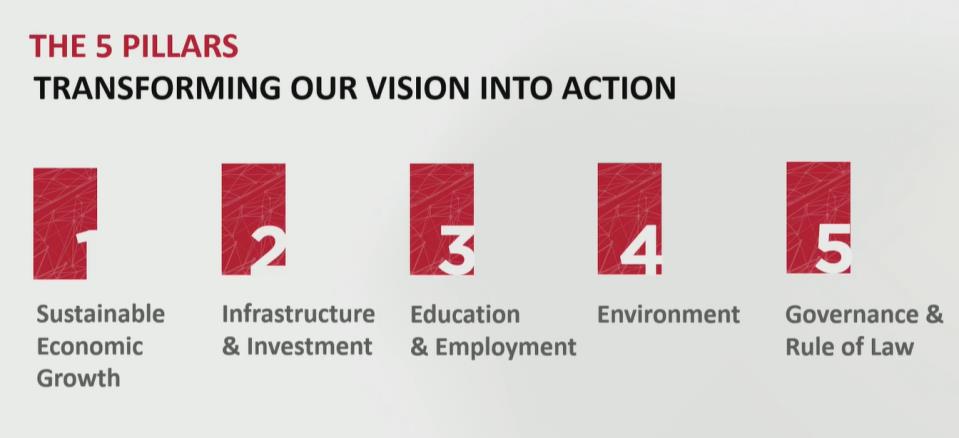With the country now having bridged the gap to the EU, the next decade will see Malta becoming a “centre of excellence”, Prime Minister Robert Abela said at the launch of a public consultation document on Malta’s economic vision for the coming 10 years.
Speaking at the launch event on Thursday, Abela said that Malta’s economic performance in the pandemic – wherein unemployment and GDP have both already come back to pre-pandemic levels – proves that the country is built on a “strong and sustainable system.”
Abela underlined how the government has always seen financial outlay as an investment, rather than as simple spending. He said that the trust between the government and the business community had not only resulted in people hanging on during the pandemic, but in the creation of some 5,000 new businesses throughout 2020.
The five principles which provide the outline for Malta’s economic vision – titled ‘A Future-Proof Malta’ – are:
- Sustainable Economic Growth
- Infrastructure and Investment
- Education and Employment
- Environment
- Governance and Rule of Law
Giving a general overview of the pillars, Abela said that Malta has now been brought up to, and in some cases surpassed, the EU average – and that the next decade are what will turn Malta into a “centre of excellence.”
He said that much has to be done to reach this goal: the country’s educational and training system, for instance, need a “radical” transformation in order to meet the country’s needs.
“We need to create a culture where learning is a constant feature in life”, Abela said, noting that Malta must embrace digital technology in order to stay ahead of the curve.
Infrastructure, he said, is another important point, noting that the progress of the past years had come about despite – not because of – the country’s current infrastructure. This was why the government had announced a €500 million investment in industrial infrastructure last year, Abela said.
Moving onto the environment, Abela said that this is probably the most important point, noting that we must understand that climate change can represent a far larger challenge than the Covid-19 pandemic has been. He noted how the government had set the ambitious target to become carbon neutral in a single generation.
“To those who think that the environment and the economy are conflicting fields, this ambition must sound like the environment has won and that the economy will now play second fiddle. That is definitely not the case”, Abela said.
“We believe that this is the time where the environment and economy must converge to become one”, Abela said before adding that the target to become carbon neutral should be seen as a huge opportunity for a multitude of fields.
“We have shown that we have the experience, and that we also have the vision”, Abela said, explaining the government’s credentials to make this change possible.
“Now, everyone from all walks of life – and I mean everyone – needs to come together to help us add onto and improve upon our line of thinking, and unite behind this vision to build our new prosperity”, the Prime Minister said.

Economy Minister Silvio Schembri gave a more detailed overview for each of the vision’s five pillars.
The pillar concerning Sustainable Economic Growth, Schembri explained, will seek to safeguard current growth industries while also creating a culture of innovation for new niches and engines of growth.
It will also see the introduction of a framework for how public and private players can contribute to re-dimension the country’s economic model towards “inclusive and sustainable growth for the long-term.”
On infrastructure and investment, Schembri said that the country is striving to develop a “world-class” and sustainable infrastructure across road, air, and sea transportation, while also creating a vibrant investment environment for domestic and foreign entrepreneurs and “becoming a regional hub for start-ups.”
On education and employment, Schembri said that the vision seeks to provide conditions where workers in Malta can acquire the necessary knowledge and skills to build an economy for the future, and also create high-quality and well-paying jobs which will make Malta a “natural home for global talent.”
On the environment, Schembri said that the vision is to “safeguard Malta’s future generations” and to facilitate a smooth transition towards a sustainable and circular economy across all sectors of economic activity so that carbon neutrality can be achieved by 2050.\
On rule of law, Schembri said that the vision entails the enhancement and promotion of good governance across every sphere of public life and across key institutions so that the country can “affirm itself as a trustworthy, transparency, and efficient economic partner on the global sphere”
The vision is open to public consultation until 31 July 2021.